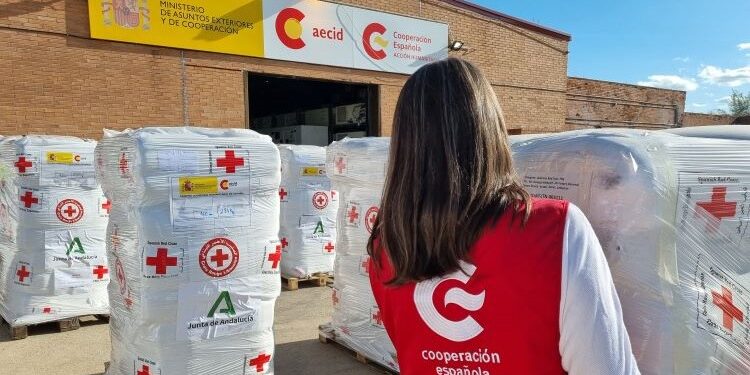Over the past five years, the Ministry of Foreign Affairs, European Union and Cooperation has reinforced its commitment to humanitarian action, tripling the humanitarian budget of the Spanish Agency for International Development Cooperation (AECID), which has risen from €44.61 million in 2019 to more than €133 million in 2024. Compared to 2023, this represents a 7.4% increase.
In total, in 2024 Spain allocated more than €181 million to humanitarian aid, mainly through AECID. This evolution places the country among the 25 largest humanitarian donors worldwide, with expectations of sustained growth in line with the provisions of Law 1/2023 on sustainable development cooperation and global solidarity.
“An expression of Spanish solidarity”
In the words of Minister Albares: “Humanitarian action is not only a priority of Spanish foreign policy, but also an expression of the solidarity of Spanish society and a key tool for building a safer, fairer and more sustainable world.”
“Spanish humanitarian action is present in the most severe crises of our time, such as Gaza, Ukraine or Sudan, as well as in those that receive less visibility, such as Haiti or Mali,” Minister José Manuel Albares stressed. In 2024, AECID also responded to a range of humanitarian emergencies, including Hurricane Beryl and the migration crisis in Central America, through the deployment of the START team. In total, AECID allocated €15 million in 2024 to emergency interventions.
Humanitarian action is guided by the principles of neutrality, impartiality and independence, and aims to save lives, alleviate suffering and protect human dignity in crisis situations—whether caused by armed conflict or natural disasters. This includes ensuring access to food, water, shelter, medical care, physical and psychological protection, as well as essential services such as education in emergency contexts.
Upholding International Humanitarian Law
Last year was the deadliest on record for humanitarian workers, with 377 fatalities worldwide in places such as Gaza, Sudan and Ukraine. Against this backdrop, the Foreign Ministry advocates full compliance with International Humanitarian Law in all contexts and by all actors, with the goal of protecting civilians and humanitarian personnel—whose work is more vital than ever.
Currently, more than 300 million people worldwide are in need of humanitarian assistance. This figure has nearly doubled in the past five years, driven by the combined impact of more than 130 active armed conflicts and the effects of climate change. In parallel, the number of forcibly displaced people has surpassed 123 million—the highest figure ever recorded. To respond to the growing need for assistance, Spain is advancing humanitarian diplomacy, both bilaterally and through the European Union.







